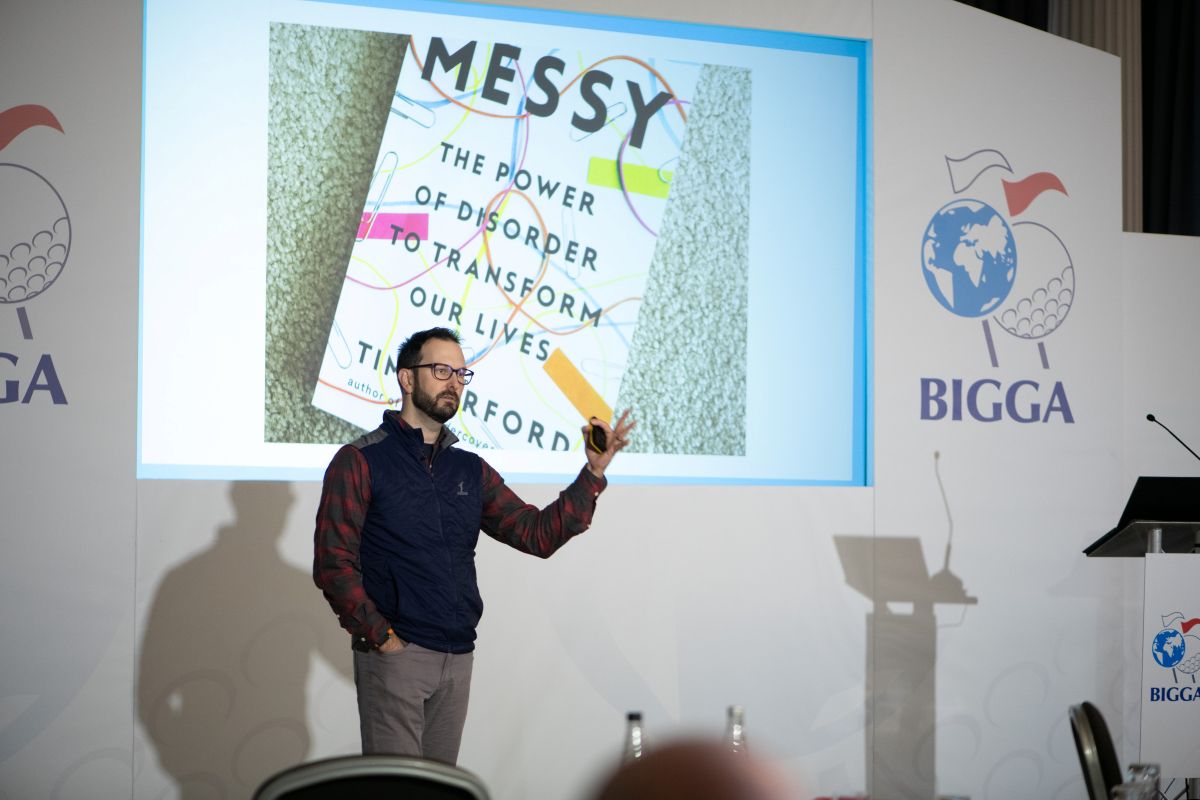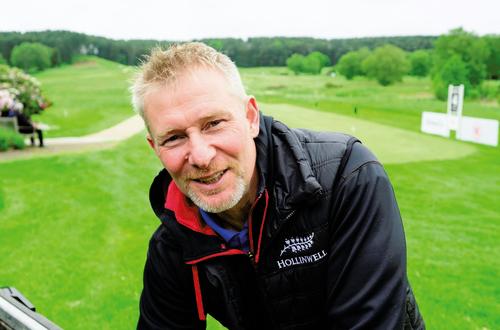- Homepage
- News and Features
- Chris Tritabaugh's 10 Rules for Leadership
Chris Tritabaugh's 10 Rules for Leadership
Hazeltine National’s superintendent shares the guiding principles he uses to lead his team and strike a harmonious balance between work and life.

Amid the many demands of golf course management and family life, Chris Tritabaugh has developed a winning formula to achieve professional and personal fulfillment.
As superintendent of the world-renowned Hazeltine National, he has prepared courses for multiple headline events, including the Ryder Cup. As a married father of three, Chris also has a busy schedule away from work, but he has found a way to strike a healthy equilibrium between his career and his home life.
Chris’ 10 rules for leadership and balance emerged from years of practical experience and provide a holistic strategy for navigating workplace challenges while maintaining personal wellbeing.
By addressing chronic stress and redefining professional excellence, these principles challenge leaders to think differently about success. More than theoretical concepts, these rules are hard-earned insights that invite professionals to embrace a more balanced, intentional approach to their careers and lives.
1. Know the puzzle you’re putting together
Have a clear vision and guiding principles for your project. Like assembling a puzzle, start with understanding the end goal, find the edge pieces and work systematically. Don’t get overwhelmed by the middle stages; focus on a strong beginning and end. Develop a strategic approach that allows flexibility while maintaining a consistent overall objective.
2. Clean up the kitchen (don’t forget about your other team)
Prioritise your home team as much as your work team. Be present and reliable for your family by completing small but meaningful tasks. Maintain a non-negotiable relationship with time, ensuring you’re home when promised. Take responsibility for household chores, be a supportive partner and parent, and demonstrate commitment to your family’s wellbeing.
3. Getting it right rather than being right
Prioritise solving problems over defending your initial position. Be open to feedback and willing to adapt your approach. Listen to constructive criticism and view challenges as opportunities for improvement. Focus on achieving the best possible outcome rather than proving your original method was correct, and remain flexible in your problem-solving strategy.
4. A pizza party does not a culture make
Creating a positive workplace culture requires more than superficial perks. Develop meaningful experiences that engage employees and make them feel valued. Provide opportunities for involvement, innovation and decision-making. Foster an environment where team members are excited to contribute and feel they have a genuine stake in the organisation’s success.
5. Beware the circle
Avoid continuous work cycles that lead to burnout. Create reference points and breaks to help employees rest and recharge. Recognise the dangers of constant work without pause. Implement strategies that allow for mental and physical recovery, such as clear work-rest boundaries and opportunities to step back and reset.
6. Strive to develop character and ability, not status and power
Focus on personal and professional growth over climbing the career ladder. Develop a mastery mindset by being passionate about foundational skills, embracing continuous learning and being patient with your career progression. Prioritise becoming excellent in your current role rather than obsessing about future positions.
7. Be a leader
Empower your team by listening more and speaking less. Create an environment where employees feel comfortable sharing ideas and contributing to problem-solving. Trust your team’s capabilities and encourage innovation. Lead by enabling others to think critically and take ownership of their work, rather than micromanaging.
8. Give yourself a break
Recognise the importance of rest and self-care. Take regular breaks, whether it’s a short nap, a weekend off or a vacation. No one will mandate your downtime, so proactively schedule moments of recovery. Understand that periodic rest enhances productivity and prevents chronic stress.
9. Practical action over organisation
Embrace flexibility and adaptability instead of rigid planning. Recognise that detailed plans often fail when confronted with real-world complexities. Focus on taking practical actions that move you toward your goal. Be willing to adjust strategies quickly and maintain momentum, even when circumstances change unexpectedly.
10. Walk
Incorporate walking into your daily routine for physical and mental benefits. Use walking as an opportunity to gain perspective, reduce stress and engage with your environment. Take time to move slowly, observe your surroundings and create mental space for creativity and problem-solving.
Author

Chris Tritabaugh

About Chris Tritabaugh
Since 2013 Chris has been the golf course superintendent at Hazeltine National Golf Club in Chaska, Minnesota. In 2016 Hazeltine played host to the 41st Ryder Cup matches, and in 2019 Hazeltine hosted the KPMG Women’s PGA Championship. Having also provided the stage for the 2024 US Amateur Championship, in 2029 it will become the first American club to host a second Ryder Cup. In 16 years as a Golf Course Superintendent, Chris has worked hard to develop and fine-tune a simplistic method of greenkeeping, predominantly aimed at promoting and managing bentgrass playing surfaces. These simple and economical methods were on display to the world during the 2016 Ryder Cup. Chris also has a passion for leadership and leads a work-place culture focused on providing multi-generational employees with an enjoyable, stimulating and inspirational experience.

